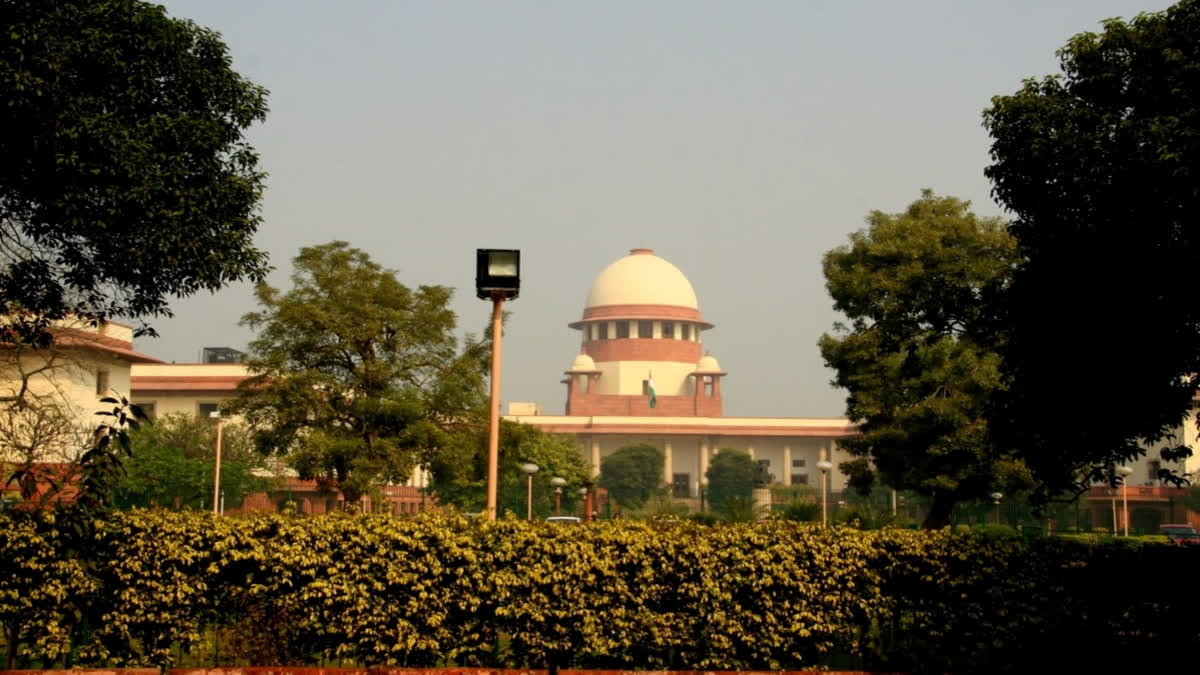New Delhi:The Supreme Court on Friday said the CBI embarked on a roving and fishing inquiry on the strength of the audit report of the Comptroller and Auditor General (CAG) while setting aside an order passed by a Delhi court framing charges against a Karnataka-based private firm, which was accused of facilitating illegal sale of coal rejects through another firm.
A bench comprising Justices Hima Kohli and Ahsanuddin Amanullah said, “The Washability Report submitted by CIMFR, Nagpur, a Government Laboratory stated in so many words that the coal rejects did not contain any useful c.v. Therefore, the entire edifice of criminality and conspiracy built by the respondent-CBI on the premise that the coal rejects had a commercial c.v. with an assertion that the appellants had profited from the sale thereof in the open market and pocketed the sale proceeds, flies in the face of the Washability Report”.
Justice Kohli, who authored the judgment on behalf of the bench, said: “We are of the opinion that the respondent–CBI embarked on a roving and fishing inquiry on the strength of the audit report of the CAG and then started working backwards to sniff out criminal intent against the appellants”.
The bench said the underpinnings of what was a civil dispute premised on a contract between the parties, breach whereof could at best lead to determination of the contract or even the underlying lease deed, has been painted with the brush of criminality without any justification.
“This criminal intent has been threaded into the dispute by the respondent-CBI by misinterpreting the clauses of the agreements governing the parties and by heavily banking on the observations made in the Audit Report of the CAG that has not attained finality till date. In view of the glaring infirmities mentioned hereinabove, the impugned orders deserve interference in the exercise of the powers vested in this court under Article 136 of the Constitution of India”, said Justice Kohli.
A joint-venture agreement was executed between the Karnataka Power Corporation Limited (KPCL) and M/s Eastern Mineral and Trading Agency (EMTA) for a period of 25 years for the development of captive coal mines and supply of coal to a thermal power plant of the KPCL -- the Bellary Thermal Power Station (BTPS).
The Centre allocated three coal blocks to KPCL in Maharashtra for the development and operation of coal mines dedicated to feeding the BTPS. It was alleged that EMTA entered into a criminal conspiracy with an objective to facilitate illegal sale of coal rejects by GCWL (M/s Gupta Coalfields and Washeries Limited) that were generated during washing of coal and gained undue pecuniary advantage to the tune of Rs 53.37 crore.
In March 2022, a special CBI court, Delhi, framed charges of criminal conspiracy, breach of trust and other offences under the Prevention of Corruption Act.
The apex court, in its 105-page judgment, said the central government had not come up with any specific plan to dispose of the coal rejects, as is apparent from a perusal of the reply submitted by the Minister of State, MoC in the Lok Sabha, stating that the Government had not framed any National Policy for exploitation of coal rejects and the same was still under consideration. “In the absence of a policy to dispose of the coal rejects, the appellants cannot be blamed for complying with the terms and conditions stipulated in the JVA”, said the bench.
The apex court said the plea of the respondent-CBI that it conducted an investigation in the present case during the course of the inquiry in respect of PE-5 registered by it in the year 2012 is belied as the source information report (SIR) was on a completely different aspect. “CBI only got activated only on stumbling upon the Audit Report of the CAG submitted in 2013. There is nothing brought on record to show to the contrary”, said the bench.
The apex court termed the infirmities "glaring" and quashed the trial court's order framing charges against the EMTA and its officials.
The bench said prima facie it is of the view that the allegations levelled against the appellants have pre-dominant contours of a dispute of a civil nature, and it does not have the makings of a criminal offence and on an overall conspectus of the case, would persuade any reasonable person to dismiss the accusations levelled. “Therefore, this court declines to go into the nitty gritties of the documents/evidence, or the contrasting data produced by the parties to test their probative value”, said the bench.
Read More
- Section 479 of BNSS Would Apply Retrospectively for Undertrials, SC Told
- No Immediate Relief For Arvind Kejriwal, SC Adjourns His Bail Pleas Till September 5
